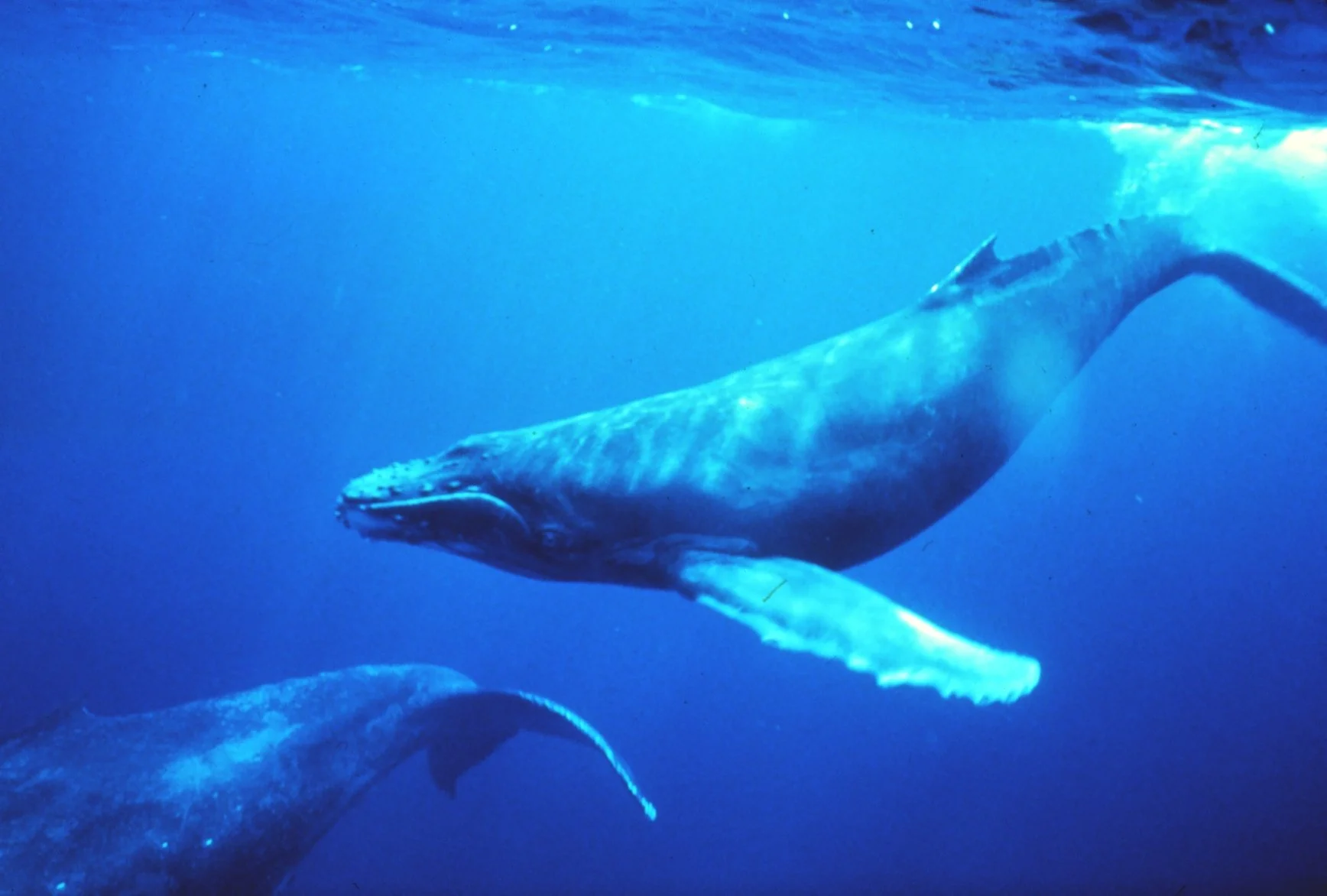Hearing Climate Change: The Sound of Disappearing Notes
Humpback whales in singing position. Author: Dr. Louis M. Herman. Wikimedia Commons.
Climate change is one of the main issues facing humanity, but it can be difficult to fully grasp what scientific terms such as “biodiversity loss” really mean. Art can play an important role in translating scientific facts into stories that touch peoples’ hearts and maybe even inspire them to act. A powerful example: “Hebrides Redacted,” a collaboration between Cambridge economist Dr. Matthew Agarwala and composer and conductor Ewan Campbell.
1829: Felix Mendelssohn’s Trip to Scotland
Composer Felix Mendelssohn was a true child of the Romantic period. Full of imagination and feeling, he captured nature’s poetry in his own music. In the summer of 1829, he travelled to Scotland, whose wild landscape fired the imagination of the Romantics. During this trip, Mendelssohn also visited the Hebrides, an archipelago of hundreds of small, rugged islands off Scotland’s Westcoast. Enchanted and stirred up by the foaming waves, the roaring wind, the cliffs and the mysterious sea echoes of Fingal’s Cave, Mendelssohn wrote to his family a letter with the first twenty-one bars of what would become his “Hebrides Overture,” adding only the words: “In order to make you understand how extraordinarly the Hebrides affected me, the following came into my mind there.”
Hebrides Redacted
Situated on the margins of the European continent in the Atlantic Ocean, the Hebrides are home to whales, dolphins, porpoise and sharks. But since Mendelssohn’s visit, many of the species have come close to extinction. Take the North Atlantic humpback whale: when Mendelssohn wrote the “Hebrides Overture,” there were approximately 30,000 humpback whales in the sea. But by 1920, two thirds of all humpback whales were gone because of commercial whaling. Dr. Matthew Agarwala and Ewan Campbell make this devastating decline of a species audible: they observed that the number of notes in Mendelssohn’s “Hebrides Overture” roughly corresponds to the number of humpback whales in the sea at the time of composition. Campbell next divided Mendelssohn’s score into decades and proceeded to take out notes in proportion to the decline of whales. Every disappearing notes stands for the death of a whale.
Nature is going quiet because of the loss of biodiversity. “Hebrides Redacted” makes this loss audible. But Agarwala and Campbell don’t leave their audience without hope. The last part of the piece foreshadows a future where the whale population increases: with the right policies, the humpback whale population could fully recover. As the whales return, the silence becomes once again filled with beautiful music.
The Song of the Humpback Whale
The decline of humpback whales has literally made the oceans more silent places: whales sing. The most famous singers among the whales are the male humpback whales, but they don’t just “know” automatically how to sing their songs to attract a mate. They must learn them from other whales. The songs of the humpback whales can be thirty minutes long, they use different themes shared by male whales using the same breeding area and span seven octaves, a range similar to the piano. The songs evolve over the mating season. Every year, the male whales produce a new song.
Whale Poop Protects the Planet
The fact that whales are endangered is not just sad. It is very bad news for planet Earth. Whales feed deep down in the ocean, but they come up to the surface to poop. Their poop is extremely rich in nutrients and provides crucial nutrition to phytoplankton, plant-like organisms floating on top of the oceans. Phytoplankton are at the base of the food chain in the oceans: phytoplankton gets eaten by zooplankton, a type of plankton (tiny floating organisms) that is already a tiny animal. Small fish eat zooplankton, and in turn get eaten by larger fish, moving up the food chain.
But the plant-like phytoplankton also plays an important role in combating climate change: phytoplankton absorbs almost a third of human-generated carbon dioxide from the atmosphere and produces half of planet earth’s oxygen. Too much carbon dioxide in the atmosphere drives climate change: it acts like glass in a greenhouse, trapping heat and warming up the planet.
